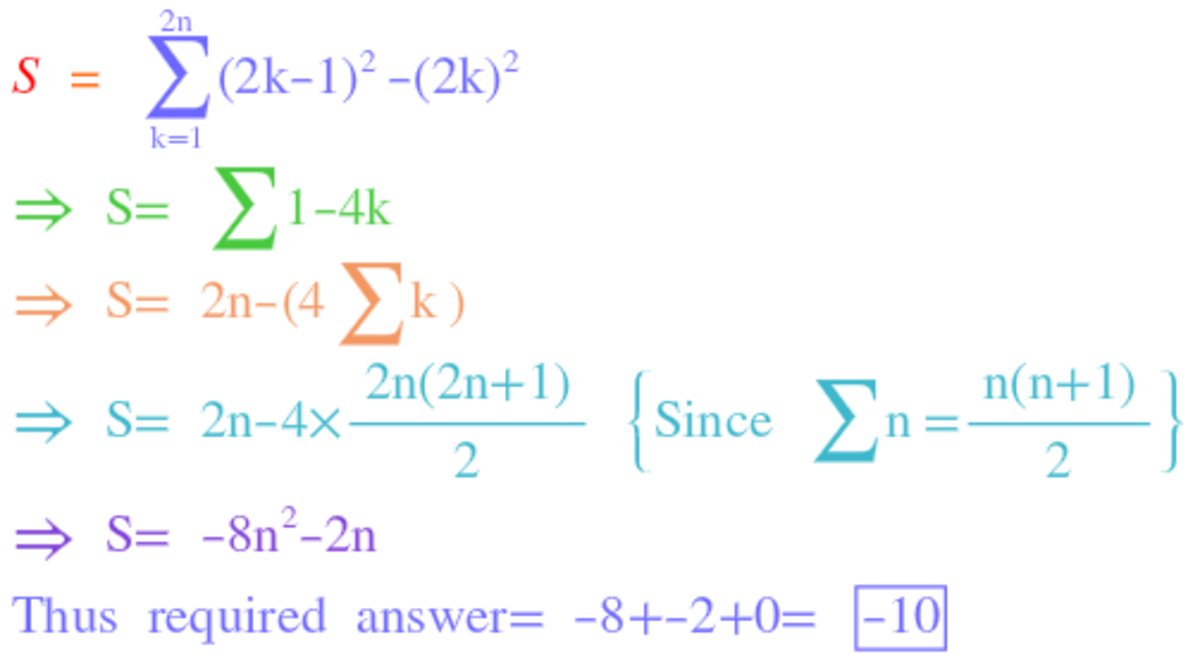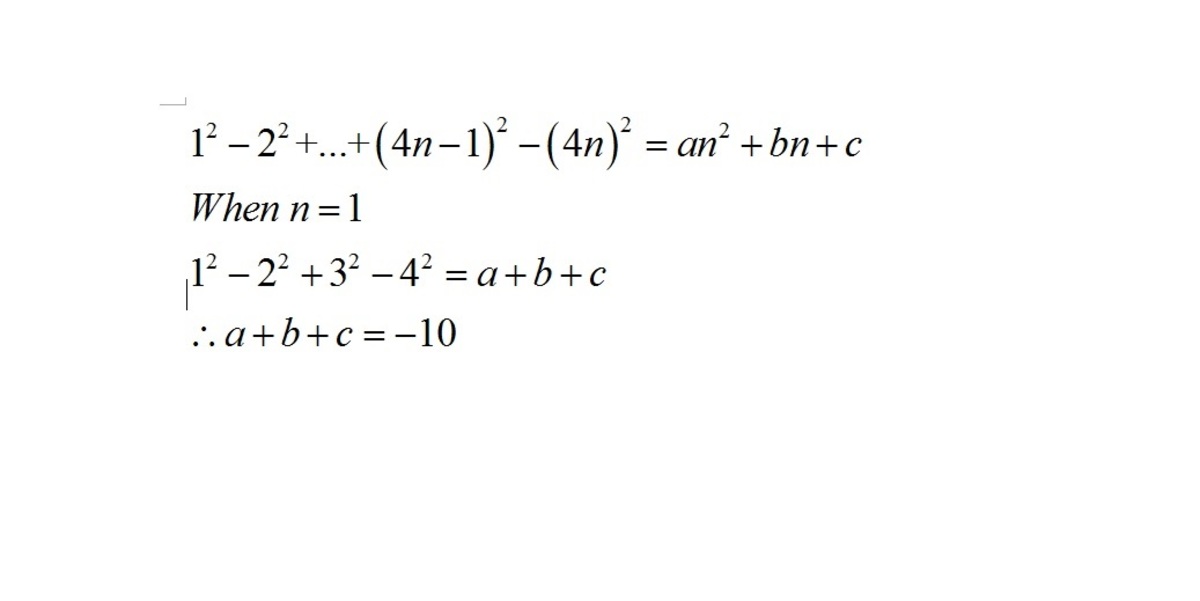Summation Thug Life!
1 2 − 2 2 + 3 2 − 4 2 + 5 2 − ⋯ + ( 4 n − 1 ) 2 − ( 4 n ) 2
If the sum above can be expressed in the form of a n 2 + b n + c , where a , b and c are integer constants, find a + b + c .
The answer is -10.
This section requires Javascript.
You are seeing this because something didn't load right. We suggest you, (a) try
refreshing the page, (b) enabling javascript if it is disabled on your browser and,
finally, (c)
loading the
non-javascript version of this page
. We're sorry about the hassle.
5 solutions
Arkajyoti, Nice answer
Moderator note:
Simple standard approach.
Great use of colors :-)
Log in to reply
I disagree. It is unnecessary and makes the solution harder to read. If the colors were used to highlight certain changes / equations to focus on, then yes it would be a good use of them.
Simple colorful approach
The only sol. I understood, thanks alot!
S − S = = 1 2 2 2 − − 2 2 1 2 + + 3 2 4 2 − − 4 2 3 2 + + … … + + ( 4 n − 1 ) 2 ( 4 n ) 2 − − ( 4 n ) 2 ( 4 n − 1 ) 2
n 2 − ( n − 1 ) 2 = ( n − n + 1 ) ( n + n − 1 ) = n + n − 1 = ( n − 1 ) + n
− S = 1 + 2 + 3 + 4 + ⋯ + ( 4 n − 1 ) + 4 n − S = 2 4 n ( 4 n + 1 ) = 8 n 2 + 2 n S = − 8 n 2 − 2 n
Moderator note:
Please add words to explain what you are doing. Not everyone can be a mindreader.
input n=1, then use the formula until n=1 equaling to a+b+c.


Rearranging the expression into groups like this: ( 1 2 − 2 2 ) + ( 3 2 − 4 2 ) + ( 5 2 − 6 2 ) + ⋯ = ( − 3 ) + ( − 7 ) + ( − 1 1 ) + ⋯
This expression represents an arithmetic progression with first term a = − 3 , common difference, d = − 4 . Since we adjusted 2 terms in one group, no. of terms in this AP have to be taken as 2 4 n = 2 n .
So, using the arithmetic progression sum formula:
S = = = = = 2 N [ 2 a + ( N − 1 ) d ] 2 2 n [ 2 ( − 3 ) + ( 2 n − 1 ) ( − 4 ) ] n ( − 6 − 8 n + 4 ) n ( − 8 n − 2 ) − 8 n 2 − 2 n + 0
Comparing it with a n 2 + b n + c shows that a = − 8 , b = − 2 , c = 0 . Thus our answer is a + b + c = − 1 0 .